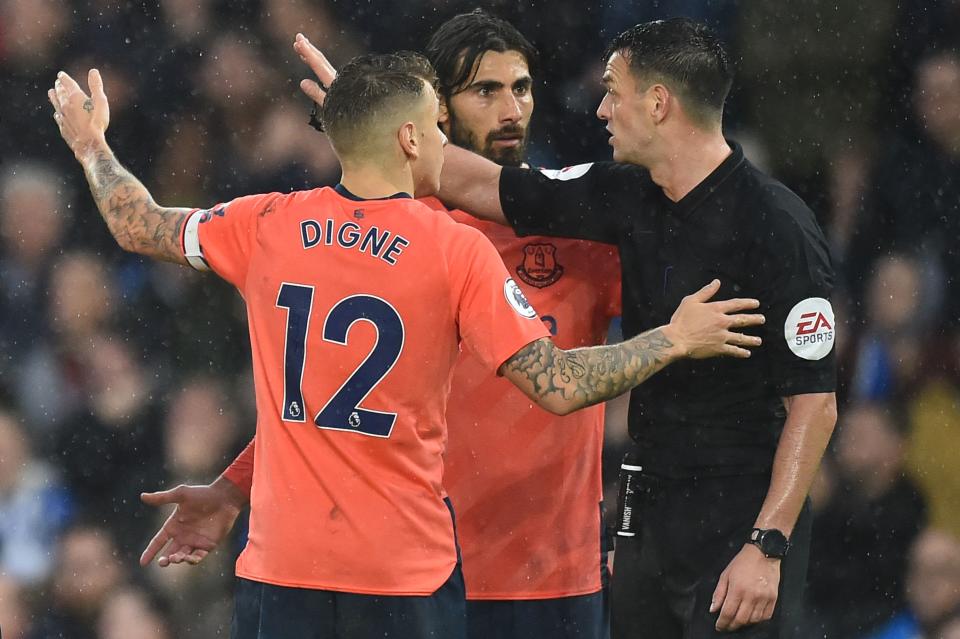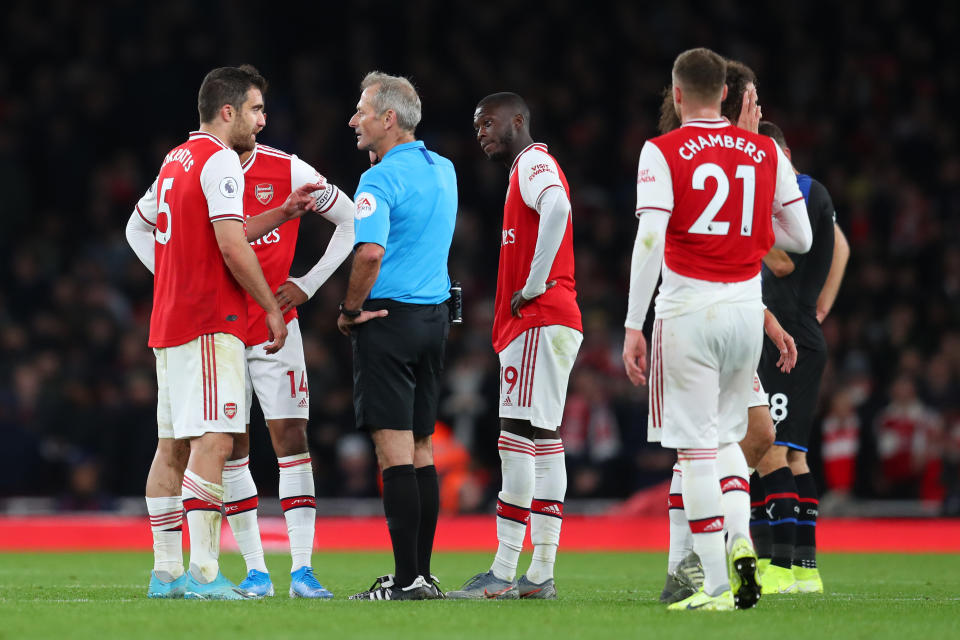Premier League chairmen want change to VAR policy

After another weekend dominated by VAR controversies, Premier League chairmen are considering changing policy to ensure referees use pitchside monitors to double-check incidents.
Monitors are in use at all Premier League grounds, but referees have been advised to allow VARs (Video Assistant Referees) to minimise delays and not negatively affect the in-stadium experience, but the chairman now believe this is leading to incorrect decisions being made. The sentiment is that if the referees make the final decision, the technology will come under less fire.
The next PL chairmen’s meeting is on 14th November, with VAR at the very top of the agenda.
Speaking to The Times, one chairman said: “The issue of pitchside monitors was raised at our last meeting in September but it was hardly debated — it will be different at the next one.
READ MORE: Clubs could seek increased use of VAR monitors
READ MORE: Billy Vunipola challenges the Springboks to 'bring it on!'
“There are probably ten clubs now who have been on the receiving end of VAR decisions who feel that if the referee had looked at the incident himself, he may well have made a different decision.
“There will be a lot of pressure now for the referees to engage with the monitors, especially if it’s going to change the outcome of a game. I think we will seriously consider making a change.”
There have been 26 overturned decisions in the Premier League so far this season, with incidents at the Emirates Stadium, the Etihad and the Amex Stadium all causing much debate over last weekend’s round of games.

Key to the implementation of VAR is that there must be a “clear and obvious error” to overturn a decision, as outlined by the PGMOL (Professional Game Match Officials Board). Incidents like the one between Arsenal and Crystal Palace, where Callum Chambers was deemed to have committed a foul in the buildup to the Sokratis Papastathopoulos goal that would have potentially won Arsenal the game, seemed debatable at best, and yet it was still overturned.
After the game, Sokratis said: “VAR is a good solution but for me the referees have to use [monitors] every time.”
READ MORE: Sale allow Ben Curry to watch twin Tom in World Cup final
READ MORE: Nigel Benn forced to cancel comeback fight due to injury
Former Premier League referee Neil Swarbrick is the Head of Implementation of VAR in the Premier League. He told Yahoo Sport UK: “When trialling VAR we found referees were overturning 96% of decisions when they consulted monitors, because being told to look at the screen implied they had made a mistake. By trusting the VAR to help make the decision that was removed.”
After 40 Premier League games PGMOL managing director Mike Riley admitted to four clear mistakes by VARs, including the failure to award two penalties. Last weekend, there were seven overturned decisions, with three penalties awarded by VARs, the most in a single round of top-flight games so far.
Featured from our writers
Cristiano Ronaldo donates football boots to national team's under-17s women's team
Southampton donate players' wages to charity after 9-0 mauling by Leicester

